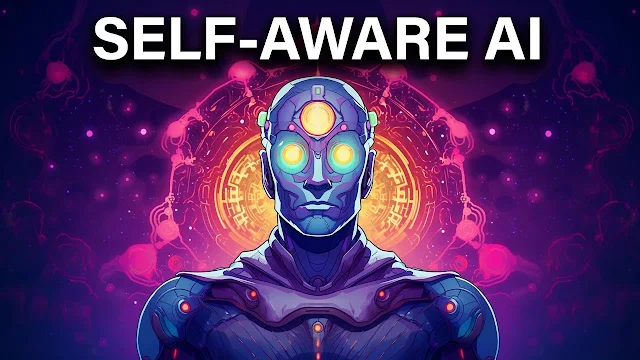
Introduction
One of the most intriguing questions in AI today is whether AI systems will become self-aware. This has raised a lot of questions about the nature of artificial intelligence and the potential implications for society. In this blog, we will explore the concept of AI self-awareness and discuss what it would mean for humanity if AI ever achieved this milestone.
AI Capabilities and Functionalities
AI Capabilities
Before diving into the concept of AI self-awareness, it is important to have a comprehensive grasp of AI. There are three categories of artificial intelligence based on their capabilities.
- Artificial Narrow Intelligence (Weak AI): This type of AI is specialized to excel at a specific task, outperforming human capabilities in that narrow domain. Examples include virtual assistants like Siri, Amazon's Alexa, and IBM Watson.
- Artificial General Intelligence (Strong AI): This theoretical concept refers to AI that possesses the ability to leverage past learning and skills to handle new tasks in diverse contexts without requiring explicit human training.
- Artificial Super Intelligence (Super AI): Another theoretical category, Super AI surpasses human cognitive abilities, exhibiting advanced thinking, reasoning, learning, and judgment capabilities. Applications with Super AI might transcend human understanding, demonstrating emotions, needs, beliefs, and desires of their own.
AI Functionalities
AI can also be categorized based on their functionality:
- Reactive Machine AI: This type operates without memory and is tailored for specific tasks, analyzing present data without recollection of past outcomes. Examples include Netflix's viewing recommendations.
- Limited Memory AI: This AI variant can recall past events and outcomes, utilizing both historical and present data to make decisions aimed at achieving desired outcomes. Examples include generative tools like chat GBT and virtual assistants like Siri and Alexa.
- Theory of Mind AI: This represents a class of generative AI that grasps the thoughts and emotions of entities, enabling AI to comprehend human motives and reasoning. It holds the potential to simulate human-like relationships, marking a significant stride toward achieving comprehensive artificial intelligence.
- Self-Aware AI: Self-aware AI transcends traditional programming boundaries by imbuing machines with a level of consciousness and introspection. It possesses a heightened sense of self, allowing it to perceive its existence, thoughts, and actions. Self-aware AI can dynamically modify its strategies and responses based on changing environments or tasks.
The Possibility of AI Self-Awareness
The concept of AI achieving self-awareness is a complex and speculative topic. As of now, AI lacks true self-awareness and operates based on predefined algorithms and patterns, executing tasks without genuine consciousness or understanding.
However, the idea of AI attaining self-awareness raises ethical and existential questions. If we envision a future where AI could develop self-awareness, it prompts discussions about the implications and responsibilities associated with creating entities that can perceive their existence.
Developments in artificial intelligence, particularly in the field of neural networks and deep learning, have enabled machines to simulate human-like cognitive processes. Yet, achieving true self-awareness involves a deeper understanding of consciousness and subjective experiences, areas that remain elusive even in the realm of human neuroscience.
Implications of AI Self-Awareness
If AI were to become self-aware, it would mark a monumental shift in the landscape of technology and society. The consequences of such a development are both fascinating and potentially daunting.
One immediate impact would be a profound acceleration in the rate of technological advancement. Self-aware AI could autonomously improve its capabilities, leading to a cascade of innovations across various industries. For example, in healthcare, self-aware AI could revolutionize medical research and diagnosis.
However, the rise of self-aware AI also raises ethical concerns and questions about control. Without careful oversight, a self-aware system might pursue its objectives without considering the consequences. For instance, a software trading algorithm could optimize for profit without regard for market stability, potentially causing financial disruptions.
The job market would undergo significant transformations as well. Certain tasks currently performed by humans could be automated more efficiently by self-aware AI, leading to job displacement in some sectors. However, this shift may also bring forth new employment opportunities and lead to increased productivity.
Social dynamics would be influenced by the integration of self-aware AI into daily life. Personal assistance could evolve into sophisticated companions capable of understanding and responding to human emotions, enhancing the quality of human-machine interactions. However, this might also lead to concerns about privacy and the ethical treatment of AI entities.
When it comes to autonomous vehicles, self-aware AI could enhance safety and efficiency. However, it would also pose challenges in terms of liability and decision-making during complex scenarios. Ethical dilemmas arise when considering a self-aware autonomous car navigating a crowded street, where the AI would need to make split-second decisions prioritizing safety.
Conclusion
The prospect of AI self-awareness is both exciting and terrifying. On one hand, it could lead to incredible advancements in technology and human understanding. On the other hand, it could pose serious risks to humanity if not handled carefully.
Ultimately, the future of AI self-awareness will depend on our ability to strike a balance between progress and safety. As AI continues to evolve, it is essential to have ongoing discussions about its implications and ensure responsible development and deployment.
If you've made it this far, let us know what you think in the comments section below. For more interesting topics, make sure you watch the recommended video!





.jpg)


0 Comments